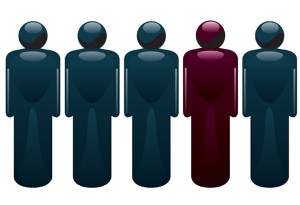Childhood and Teen OCD
 What’s the first thing you think of when you hear about obsessive-compulsive disorder (OCD)? Maybe you think of someone who washes his hands over and over, or of someone who loves a schedule and hates germs. Did you realize that as many as 1 out of every 200 kids or teens has OCD? For most of us, it’s easy to keep ourselves from performing an action over and over. Sure, I might really want that third piece of cake, but I stop myself. There is no voice in my head egging me on and telling me I simply must have it otherwise something bad could happen to me or my family if I don’t eat it.
What’s the first thing you think of when you hear about obsessive-compulsive disorder (OCD)? Maybe you think of someone who washes his hands over and over, or of someone who loves a schedule and hates germs. Did you realize that as many as 1 out of every 200 kids or teens has OCD? For most of us, it’s easy to keep ourselves from performing an action over and over. Sure, I might really want that third piece of cake, but I stop myself. There is no voice in my head egging me on and telling me I simply must have it otherwise something bad could happen to me or my family if I don’t eat it.
So when my 7-year-old son could not stop himself from going up and down our stairs in a specific pattern one day, I was worried. He was crying while he was on the stairs, but said he couldn’t stop. He had done quirky things in the past, like walking in a pattern or stepping over cracks, but these things had never made him upset. As his symptoms got worse, I went into Mama Bear mode. I got on the phone and Internet to navigate the world of insurance, therapy visits, typical treatment length, and costs. A therapist came to our house for the first visit, and I bought the book “Talking Back to OCD” by John S. March, so that I could do something (by educating myself) in between weekly therapy appointments and know what was ahead.
“OCD is an anxiety disorder with a neurobiological basis that affects how children (and adults) think. It is characterized by obsessions and compulsions that take up more than one hour a day,” explains Winter Park-based Mary A. Travis, PhD. Though severity levels differ, kids and teens with OCD may feel compelled to perform an action, such as washing their hands dozens of times, or tapping out a pattern on the table hundreds of times. “I’ve worked with children who have an obsessive fear of bugs, weather, germs, and arrangement of objects,” adds Dr. Travis. They can become ‘obsessed’ with repeating the action to obey what their brain is telling them to do, or expect repercussions otherwise. Their brain is essentially telling them that they will feel better if they perform the specific action. In reality, obeying the brain results in it wanting them to do it even more frequently.
According to Dr. Travis, children and teens who suffer from OCD do not get pleasure from performing these rituals. “OCD is like having a monster trapped in your head–constantly scaring you with thoughts and obsessions. The chatter can get so loud that OCD ‘noise’ drowns out a teacher’s instructions and students with OCD may appear to be daydreaming, distracted, noncompliant, or even lazy.”
“OCD is common, predictable, and highly treatable. In my opinion, Cognitive Behavioral Therapy is the most effective treatment,” says Dr. Travis. Cognitive Behavioral Therapy (CBT) teaches sufferers to:
- understand their physical response as a false alarm that triggers “fight or flight”
- recognize the OCD thoughts that are frightening them and wasting their time
- understand that OCD can make the feeling that things are okay disappear quickly
“We work at putting to use strategies that fight the OCD obsessions and compulsions, such as waiting ten minutes before performing a ritual, or turning obsessive thoughts into something ridiculous and funny.”
A primary element impacting the behavioral aspect of CBT for many kids facing OCD is Exposure and Response Prevention (ERP) treatment. In essence, it’s akin to having to face one’s fears. If a child is afraid to go up stairs because he always has the compulsion to perform the same debilitating rituals, then he doesn’t avoid the stairs (exposure). Instead, he faces the stairs head-on and might keep a chart of how many times he is compelled to perform the ritual on the stairs and how many times he is able to stop it (response prevention), so that he can measure his progress.
Dr. Travis adds that mental health professionals review developmental, academic, and medical histories when diagnosing OCD and devising a treatment plan. Typically, OCD presents in tandem with another disorder, including non-OCD anxiety disorders (social anxiety), depression, or ADHD. A skilled clinician will also rule out behaviors that are merely habits or preferences.
If you suspect your child or teen has OCD, make an appointment with a reputable therapist. Also, check out relevant books such as:
- Up and Down the Worry Hill: A Children’s Book About Obsessive-Compulsive Disorder and Its Treatment by Aureen Pinto Wagner and Paul A. Jutton
- Freeing Your Child from Obsessive-Compulsive Disorder: A Powerful, Practical Program for Parents of Children and Adolescents by Tamar E. Chansky
- What to do when your brain gets stuck by Dawn Huebner
Dr. Travis reassures us that there is no evidence that OCD is caused by the way parents discipline or raise their children. Therapy that involves family members in the treatment process is ultimately the most successful.






